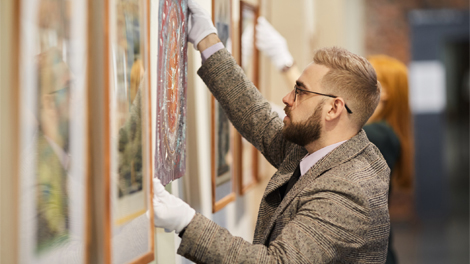“At Ascent, we use a purpose-based asset allocation construct that places client assets in four major buckets: safety, lifestyle, wealth expansion and self-actualization, or passion,” he explains. “The first three buckets should be filled before you think about filling the passion investing bucket.”
The return on passion investments
But what about investment return? Like any investment, the value of passion items is determined by supply and demand. The market for most passion items can be highly volatile.
The Beanie Baby craze in the 1990s is a good example of passion items that sold for many times their original price, only to collapse in value a short time later. Baseball cards are another example: Some collectors thought they owned valuable cards in the 1990s but soon realized all they owned were expensive pieces of cardboard. Most recently, the value of popular NFTs (non-fungible tokens) from the peak of NFT hysteria in 2022 has plummeted by as much as 95% over the past year.1
Some passion investments have generated positive returns in recent years. For example, both fine wine and collectable watches delivered a 16% return on investment in 2021.2 And investing in artwork, which is one of the most popular types of passion investments, delivered an estimated annual return of 8.3% between 1985 and 2020.3
Passion investments can also help diversify an investment portfolio. They generally tend to be non-correlated with traditional investments like stocks and bonds, serving as a counter-cyclical holding that can ease volatility during times of market turbulence.
Risks of passion investing
Rizza points out that there are also some very real risks involved with passion investing.
“From an investing standpoint, the biggest risk is simply that others may not assign the same value to passion items that you do, so they may not appreciate in value,” he says. “That’s why we usually recommend that clients purchase items mainly for their enjoyment, not for a financial return.”
Fraud and forgery are other big risks, especially with artwork and fine wines. In the early 2000s, a fraudster named Rudy Kurnaiwan perpetuated one of the greatest wine frauds in history: He put cheap wines in expensive wine bottles, altering the bottles to make them appear more valuable and aging wine bottle labels in his basement.4
Passion items can be damaged, stolen or vandalized, which makes it critical to obtain the right kind of insurance and ensure proper storage. Passion items also tend to be illiquid, given their niche appeal and high prices. “It takes time to sell these kinds of items, because there’s a limited universe of potential buyers,” says Rizza.
If you want to get serious about passion investing, Rizza recommends establishing an informal board of advisors who are experts in the category you’re interested in. “They can help you avoid some of the major pitfalls and guide you to ask the right questions in order to determine an item’s authenticity, provenance and legal ownership,” he says.
When purchasing artwork especially, only deal with reputable, well-known art galleries and auction houses that have performed due diligence on art pieces to help lessen the risk fraud and forgery. An attorney that also specializes in art can be invaluable in the very gray market of art collecting.
Start out slowly and take your time
Rizza compares passion investing to a small seedling that grows into a giant tree. “Start out slowly, educate yourself and take your time to build a passion investment collection,” he says. “Most successful passion investors have spent many years building their collections. In other words, passion investing is a marathon, not a sprint.”
Learn more about Ascent’s approach to customized investment consulting services.



